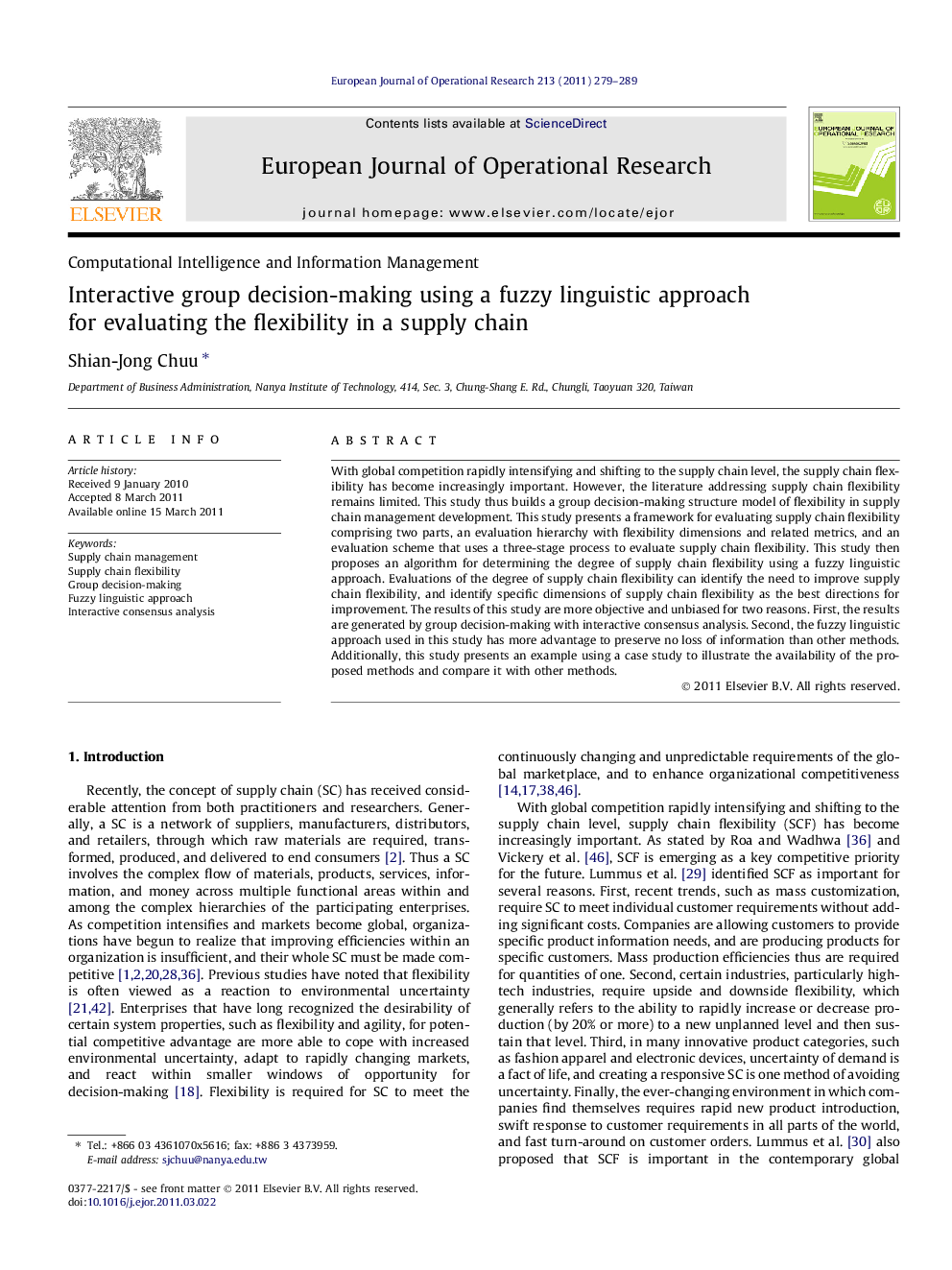| Article ID | Journal | Published Year | Pages | File Type |
|---|---|---|---|---|
| 480777 | European Journal of Operational Research | 2011 | 11 Pages |
With global competition rapidly intensifying and shifting to the supply chain level, the supply chain flexibility has become increasingly important. However, the literature addressing supply chain flexibility remains limited. This study thus builds a group decision-making structure model of flexibility in supply chain management development. This study presents a framework for evaluating supply chain flexibility comprising two parts, an evaluation hierarchy with flexibility dimensions and related metrics, and an evaluation scheme that uses a three-stage process to evaluate supply chain flexibility. This study then proposes an algorithm for determining the degree of supply chain flexibility using a fuzzy linguistic approach. Evaluations of the degree of supply chain flexibility can identify the need to improve supply chain flexibility, and identify specific dimensions of supply chain flexibility as the best directions for improvement. The results of this study are more objective and unbiased for two reasons. First, the results are generated by group decision-making with interactive consensus analysis. Second, the fuzzy linguistic approach used in this study has more advantage to preserve no loss of information than other methods. Additionally, this study presents an example using a case study to illustrate the availability of the proposed methods and compare it with other methods.
► This study builds a group decision-making structure model of flexibility in supply chain management development. ► This study presents a framework for evaluating supply chain flexibility. ► This study proposes an algorithm for determining the degree of supply chain flexibility using a new fuzzy linguistic approach. ►This fuzzy linguistic approach has more advantage to preserve no loss of information.
